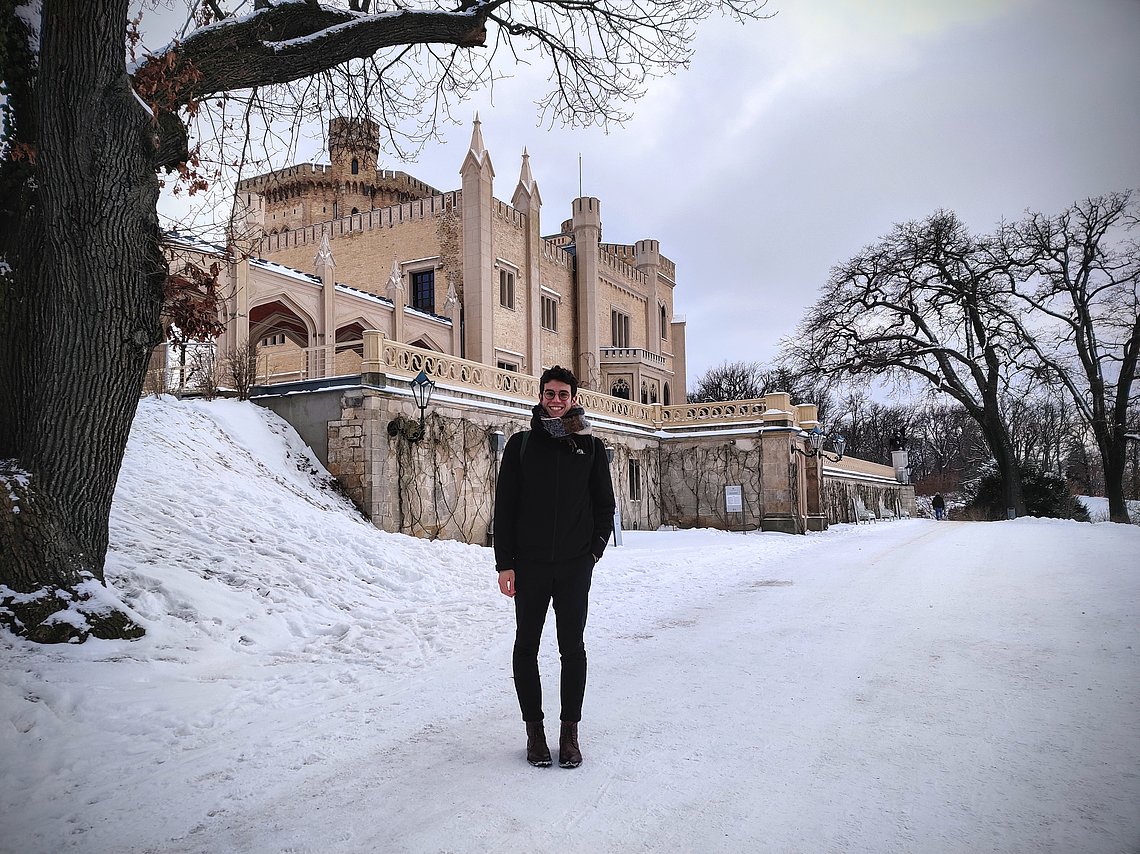2024 | Diffusion dynamics for an infinite system of two-type spheres and the associated depletion effect | M. Fradon, J. Kern, S. Roelly, A. ZassZeitschrift: Stochastic Processes and ApplicationsBand: 171Link zur Publikation
,
Link zum Preprint
Diffusion dynamics for an infinite system of two-type spheres and the associated depletion effect
Autoren: M. Fradon, J. Kern, S. Roelly, A. Zass
(2024)
We consider a random diffusion dynamics for an infinite system of hard spheres of two different sizes evolving in Rd, its reversible probability measure, and its projection on the subset of the large spheres. The main feature is the occurrence of an attractive short-range dynamical interaction – known in the physics literature as a depletion interaction – between the large spheres, which is induced by the hidden presence of the small ones. By
considering the asymptotic limit for such a system when the density of the particles is high, we also obtain a constructive dynamical approach to the famous discrete geometry problem of maximisation of the contact number of n identical spheres in Rd. As support material, we propose numerical simulations in the form of movies.
Zeitschrift:
Stochastic Processes and Applications
2022 | Gibbs point processes on path space: existence, cluster expansion and uniqueness | Alexander ZassZeitschrift: Markov processes and random fieldsLink zur Publikation
,
Link zum Preprint
Gibbs point processes on path space: existence, cluster expansion and uniqueness
Autoren: Alexander Zass
(2022)
We study a class of infinite-dimensional diffusions under Gibbsian interactions, in the context of marked point configurations: the starting points belong to ℝd, and the marks are the paths of Langevin diffusions. We use the entropy method to prove existence of an infinite-volume Gibbs point process and use cluster expansion tools to provide an explicit activity domain in which uniqueness holds.
Zeitschrift:
Markov processes and random fields
2020 | An explicit Dobrushin uniqueness region for Gibbs point processes with repulsive interactions | Pierre Houdebert, Alexander ZassZeitschrift: Journal of Applied Probability (June 2022)Link zur Publikation
,
Link zum Preprint
An explicit Dobrushin uniqueness region for Gibbs point processes with repulsive interactions
Autoren: Pierre Houdebert, Alexander Zass
(2020)
We present a uniqueness result for Gibbs point processes with interactions that come from a non-negative pair potential; in particular, we provide an explicit uniqueness region in terms of activity z and inverse temperature β. The technique used relies on applying to the continuous setting the classical Dobrushin criterion. We also present a comparison to the two other uniqueness methods of cluster expansion and disagreement percolation, which can also be applied for this type of interactions.
Zeitschrift:
Journal of Applied Probability (June 2022)
2020 | A Gibbs point process of diffusions: existence and uniqueness | Alexander ZassZeitschrift: Lectures in Pure and Applied MathematicsVerlag: Potsdam University PressBuchtitel: Proceedings of the XI international conference Stochastic and Analytic Methods in Mathematical PhysicsSeiten: 13-22Band: 6Link zur Publikation
,
Link zum Preprint
A Gibbs point process of diffusions: existence and uniqueness
Autoren: Alexander Zass
(2020)
In this work we consider a system of infinitely many interacting diffusions as a marked Gibbs point process. With this perspective, we show, for a large class of stable and regular interactions, existence and (conjecture) uniqueness of an infinite-volume Gibbs process. In order to prove existence we use the specific entropy as a tightness tool. For the uniqueness problem, we use cluster expansion to prove a Ruelle bound, and conjecture how this would lead to the uniqueness of the Gibbs process as solution of the Kirkwood-Salsburg equation.
Zeitschrift:
Lectures in Pure and Applied Mathematics
Verlag:
Potsdam University Press
Buchtitel:
Proceedings of the XI international conference Stochastic and Analytic Methods in Mathematical Physics
2020 | Marked Gibbs point processes with unbounded interaction: an existence result | Sylvie Roelly, Alexander ZassZeitschrift: Journal of Statistical PhysicsSeiten: 972–996Band: 179Link zur Publikation
,
Link zum Preprint
Marked Gibbs point processes with unbounded interaction: an existence result
Autoren: Sylvie Roelly, Alexander Zass
(2020)
We construct marked Gibbs point processes in ℝd under quite general assumptions. Firstly, we allow for interaction functionals that may be unbounded and whose range is not assumed to be uniformly bounded. Indeed, our typical interaction admits an as finite but random range. Secondly, the random marks - attached to the locations in ℝd - belong to a general normed space S. They are not bounded, but their law should admit a super-exponential moment. The approach used here relies on the so-called entropy method and large-deviation tools in order to prove tightness of a family of finite-volume Gibbs point processes. An application to infinite-dimensional interacting diffusions is also presented.
Zeitschrift:
Journal of Statistical Physics
